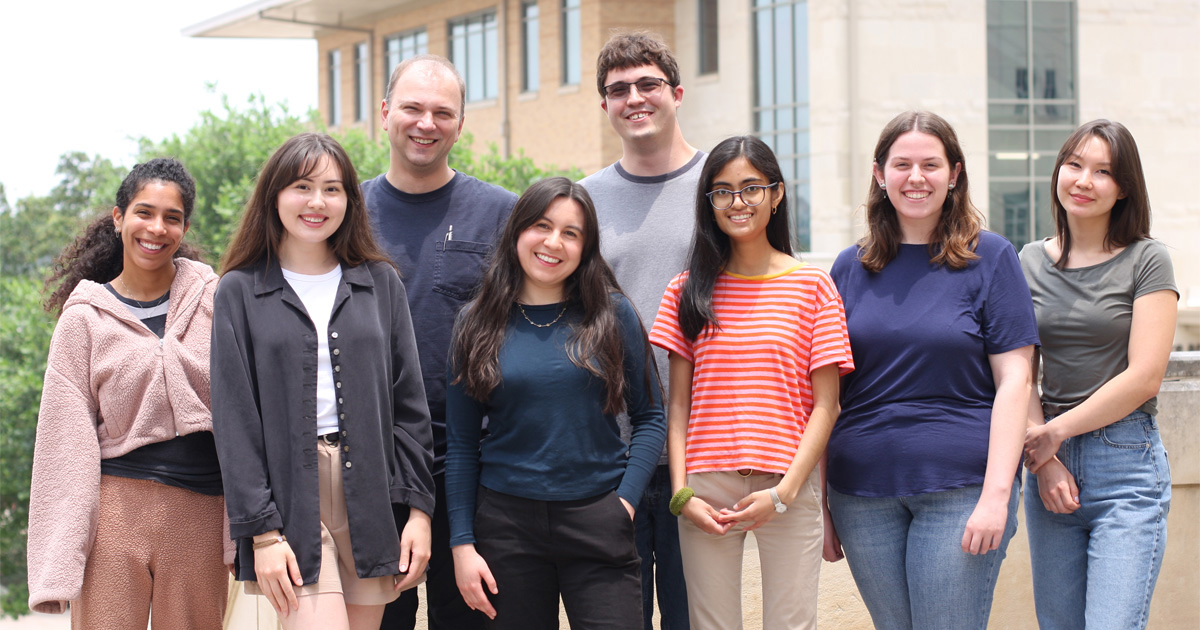Posted on August 30, 2024 by College of Sciences

CPRIT Awards COS Faculty Member
By Ryan Schoensee
The Cancer Prevention and Research Institute of Texas (CPRIT) recently awarded a research project entitled, "Regulation. Of Transcription Factor Function by Local Chromatin Context" for nearly $250,000 in funding. Alexey Soshnev, assistant professor in the Department of Neuroscience, Developmental and Regenerative Biology (NDRB), is the lead PI on the award.
The project will investigate transcription factors (TFs), which are DNA-binding proteins that recognize short sequence motifs and regulate nearby genes. This year, only twelve such projects were funded in the State of Texas.
Coordinated TF activity is fundamental in development, and TF mutations are frequent in disease. However, scientists believe that the math doesn't add up as the human genome contains orders of magnitude more motifs than occupied by TFs at any given time.
How do the TFs recognize the right motif? The Soshnev Lab at UTSA NDRB, together with collaborators at UT Health San Antonio, will explore this question, using a combination of protein biochemistry, CRISPR editing, and genomics, focusing on a transcription factor RUNX1, frequently mutated in acute myeloid leukemia. The CPRIT High Impact, High-Risk Award program was established "to explore the feasibility of high-risk projects that, if successful, would contribute major new insights into the etiology, diagnosis, treatment, or prevention of cancer."
The Soshnev Laboratory is interested in how information encoded in DNA is interpreted, modified and propagated. His team aims to understand how specific gene expression programs are established in development and how mutations in chromatin factors can lead to human disease.
CPRIT was formed in 2007 with an initial $3 billion investment from the state of Texas to fight against cancer. CPRIT is now a $6 billion, 20-year initiative and is the largest state cancer research investment in the history of the United States and the second largest cancer research and prevention program in the world.

